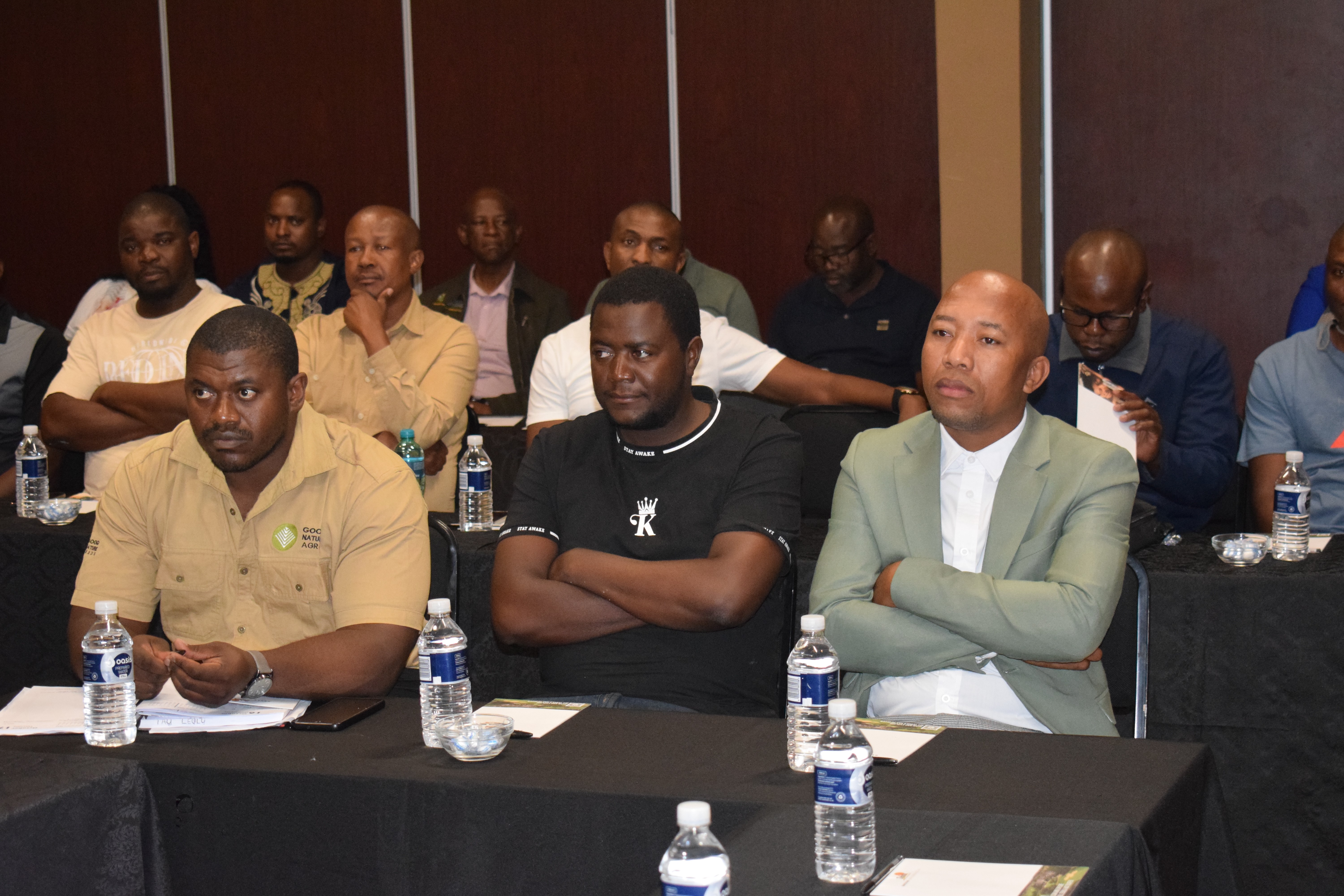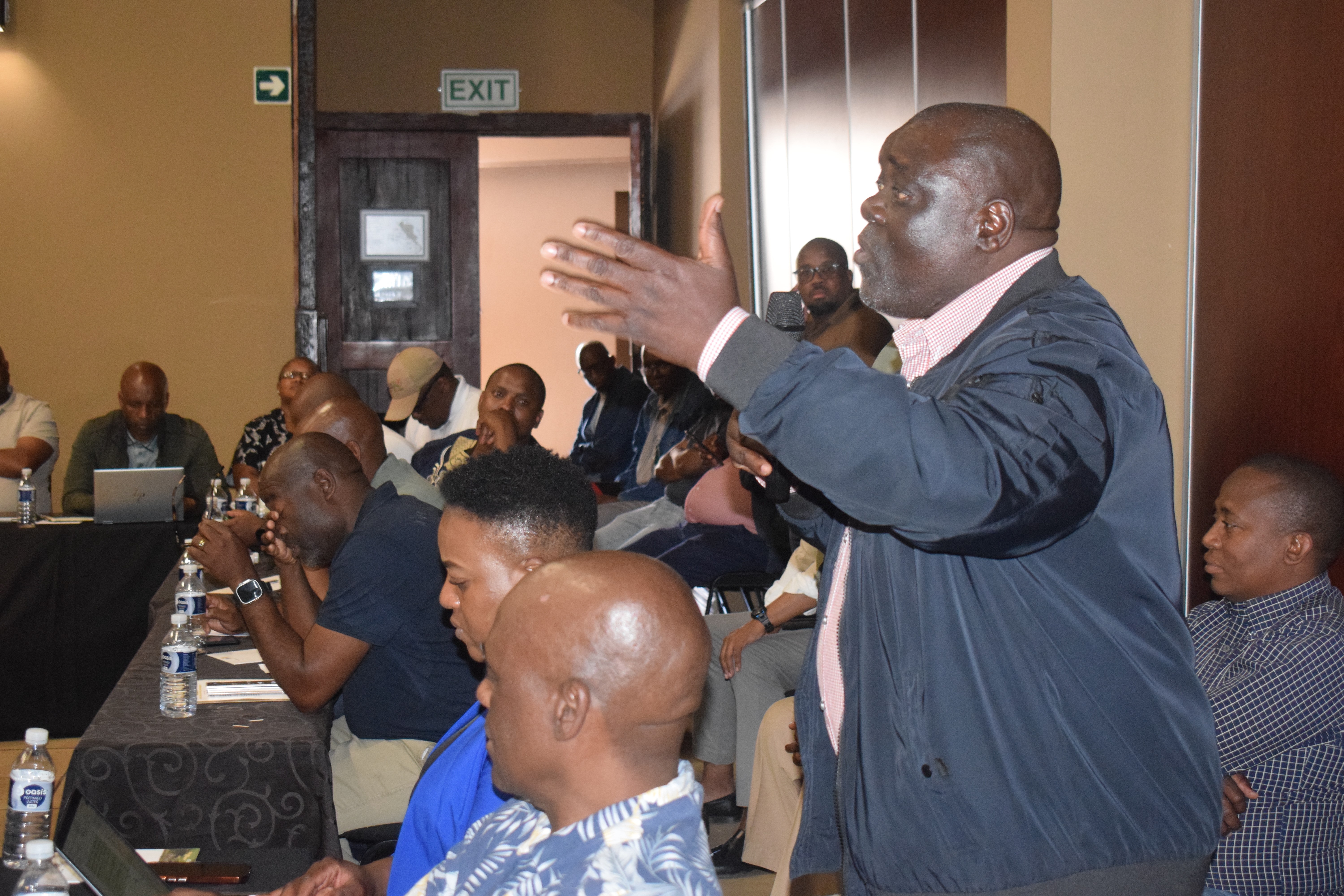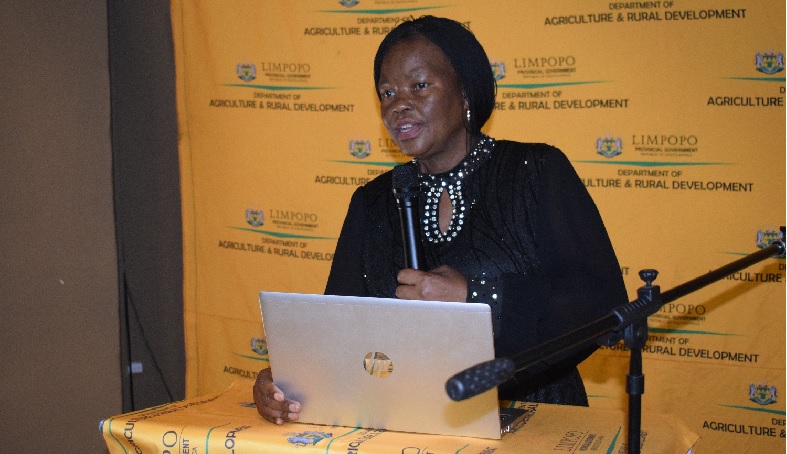By Matsobane Manaka and Maphari Machaka

Smallholder farmers need nothing but empowerment to drive economic growth
The engagement session between the Limpopo Department of Agriculture and Rural Development (LDARD) and various stakeholders on wide range of agricultural issues got the green light at Zebula, outside BelaBela in Waterberg District.
The three-day engagement session, effected from 17 to 19 October 2024, emphasized on collaboration, innovation, and inclusivity within the agricultural sector. Key stakeholders such as Limpopo Economic Development Agency (LEDA), Industrial Development Corporation (IDC) of SA, Land Bank Potato SA, Agricultural Development Agency (AGDA) and farmers from various commodity groups formed part of the meeting with the aim to mobilise the resources, expertise, and strategies to drive economic transformation, food security, sustainable rural development in Limpopo and across South Africa. This is in addition to allow inputs and align them into the strategic direction of the department.
Addressing various stakeholders, MEC Nakedi Kekana ascertained that their involvement in the agricultural value chain is crucial for ensuring that the vision of a united, prosperous, and productive agricultural sector for sustainable rural communities become a reality.
“We are aware of the challenges that lie ahead — climate change, dwindling resources, and economic constraints — but we are equally aware of the enormous opportunities that come with strategic partnerships.
“My department has been tasked with driving the commercialisation of agriculture, empowering smallholder farmers, and facilitating inclusive growth in the agricultural sector. However, success in this endeavour depends heavily on partnerships, such as Land Bank and IDC to expanding access to finance and credit; AGDA and Potato SA with their role of fostering agro-processing and value chain development thereby adding value to raw agricultural products, creating jobs and stimulating local economies; adopting to climate-smart agricultural practices through research, development, and financial support to promote climate resilience and ensure the long-term viability of the sector; and investing on infrastructure development to enable increased productivity and market access.
“The Agricultural and Agro-processing Master Plan (AAMP) serves as our blueprint for achieving this transformation. It focuses on increasing participation in the value chain, particularly for emerging black farmers and previously disadvantaged groups. Through our partnership with those key stakeholders, we can ensure that our province contributes meaningfully to the goals of this plan. As a province rich in natural resources and agricultural diversity, we are well-positioned to become a hub for agro-processing industries. This does not only add value to raw products, but also creates much-needed employment in rural areas, where economic opportunities are scarce,” MEC concluded.


MEC Nakedi Kekana arrives at Stakeholder Engagement Session

agricultural sector to create much needed jobs


